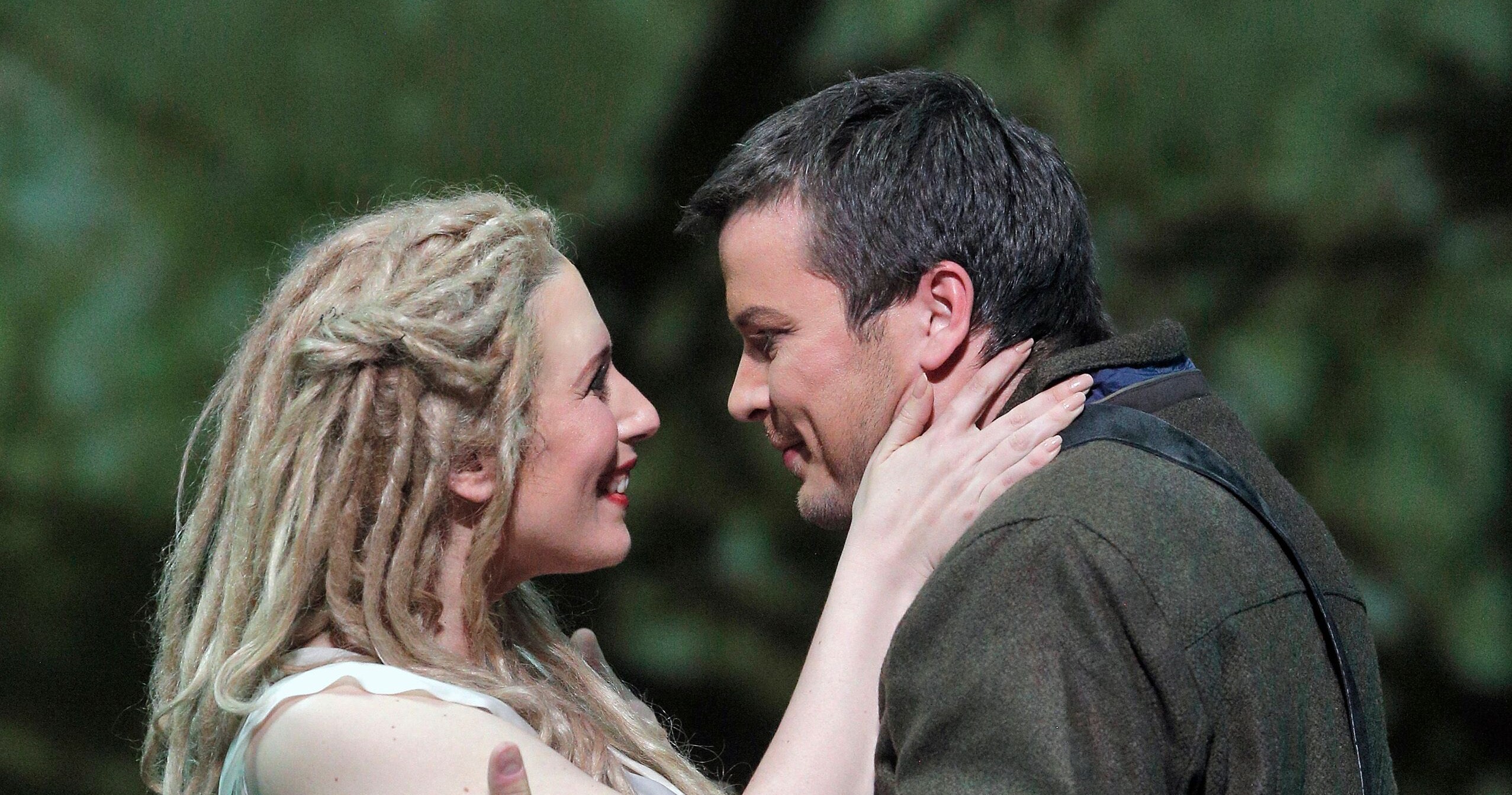IN REVIEW: August: Osage County at KC Rep, Red at the Unicorn, and Emanuel Ax with the KC Symphony
Tracy Letts’ August: Osage County is like a slowly tightening clock-spring, building tension with stealth in Act 1 and releasing that tension with a sproing in Act 2, then finally unraveling messily in the last act. The Kansas City Repertory Theatre’s current production of the Pulitzer Prize-winning 2008 play works this unfolding with relentless energy, through smart direction and excellent performances by a range of local actors. Stage director and Rep artistic director Eric Rosen’s idea was to present the sprawling family tragedy with an ensemble of actors who have worked together frequently over the years, and this gamble paid off handsomely. The talky, three-hour play, which is very much in the vein of the drug-and-alcohol-fueled family dramas by O’Neill and Albee and Williams, has caused a sensation around the country, and it is one of the more ambitious undertakings in the Rep’s recent history.
The cast is so large it takes some sorting out at first to figure out who’s who, but at the center of the maelstrom is Barb Fordham, the eldest daughter of the family (Cheryl Weaver) and Violet Weston, the imperious matriarch (Merle Moores); their nerve-wracking power struggle in the middle of an otherwise slow-paced Act 1 plants the seed for the ferocious storms to come. Weaver plays the bossy oldest sister with fierce aplomb, and is joined in well-tempered performances by Jennifer Mays as the ditsy middle sister, Karen, and Manon Halliburton as the youngest, Ivy, with her mannish airs. These four women constitute the center of the drama, while the men around them are fraught with frailties. Beverly, the alcoholic patriarch (Kip Niven), disappears after a highly effective opening scene in which he quotes T.S. Eliot ad nauseam. Bill Fordham (Craig Benton), is sleeping with one of his college students and divorcing Barb. Little Charles Aiken (Rusty Sneary) is an unemployed vagabond who watches TV all day. And Steve, Karen’s boyfriend, makes a move on Barb and Bill’s 14-year-old daughter, Jean. Yes, it’s a chaotic bunch, mitigated only by the presence of Mattie Fae Aiken, Violet’s officious but fun sister (the marvelous Kathleen Warfel) and her husband Charlie Aiken (Gary Neal Johnson), who are blithe innocents but somehow manage to be the more likeable characters. Katie Hall is quite convincing as the young pot-smoking Jean, who is in some ways as corrupt as the adults.
The sturdy uni-set designed by Donald Eastman is used ingeniously, with a central living room, study and dining room to each side, and bedrooms upstairs. You can watch subsidiary action going on in various rooms, which often play counterpoint to the main action. In some scenes, multiple dialogue is going on at the same time, in a fashion that you can’t really follow verbally but which build a gestalt mostly by the gestures and actions of the characters. Especially striking are the parallel scenes in the study, one at the outset with Beverly and Johnna, the recently hired housemaid, and one at the end with Violet and Johnna, where we realize that despite three hours of human drama nothing has really been accomplished. It’s perhaps the saddest moment of the play, partly because of a sense that we are pretty much back where we started. Luckily Barb recognizes this too, and she takes decisive action.
It’s a masterful play, destined for a long life alongside other harrowing family dramas of our time. Megan Turek’s costume designs are smart and modern, and Mark Kent Varns’ lighting design is remarkably effective. If I had one quibble with August,it’s that the profanity in the play is off the charts. I have known many, many Midwestern families from all walks of life – from working-class drones to businessmen and university professors – and never have I known a family that uses even half the amount of profanity that the Westons use in their everyday life. By Act 3 the level of “f” works and “s” words becomes so exaggerated that they dull the senses, not to mention dulling the impact that such words can have when used sparingly and effectively. It may seem like a minor point, but in an art form whose essence is language, it can indeed be central to the overall outcome of a play.
*****
The Kansas City Symphony’s season opener September 23rd through the 25th was a well-designed showcase for the Kauffman Center’s new Helzberg Hall’s acoustics, with music from a wide range of styles and periods. Shirley Helzberg was on hand to welcome the capacity audience, expressing her feeling of “joy and amazement” at the opening of the incredible new center – and she received an extended and well-deserved standing ovation for all her support of the Kauffman Center over the last 16 years. Stravinsky’s flashy Fireworks may have seemed like a good idea on paper as a opening for the concert, though in the execution it felt labored – not really an easy piece to bring off under these circumstances. Beethoven’s ”Emperor” Concerto gave us a chance to hear how the central European repertoire would sound in Yasu Toyota’s acoustic wonderland, and it was indeed a rich and powerful experience, played with enthusiasm by the orchestra and led with savvy control by music director Michael Stern. Emanuel Ax’s solo part was incisive and direct, if a tad business-as-usual. But most striking was the extent to which one could hear every whisper, every breath, every pianissimo gesture (as well as every cell-phone bleep), even up in the nose-bleed Grand Parterre where I was seated.
Michael Stern chatted after intermission, thanking the community for a new space that “allows us to serve the art of music more completely and more profoundly.” The world premiere of Chen Yi’s Fountains of KC followed, a brightly hued and tightly constructed piece of just over 10 minutes that depicts the play of water in our city’s many fountains. The whole orchestra is called upon to deliver cascades of sparkling ascents and descents, punctuated by explosions and brilliantly orchestrated textures that showed off the Helzberg acoustic. A four-note thematic kernel forms the building-blocks of the piece, which advances into a triumphal brass chorus and final splash of painterly colors. It, too, was treated to an enthusiastic Standing O. The piece de resistance was Respighi’s Pines of Rome, one of the great orchestral showpieces, which supplied the orchestra with plenty of solo opportunities. The principals sound about as they have in the 12 years I’ve lived here, especially the marvelous principal clarinetist Raymond Santos, though the ensemble with the brass players located high in the Grand Parterre was not always spot-on. Still, the piece brought the house down in a blaze of noisy glory.
*****
John Logan’s Red is an ingeniously conceived play about Mark Rothko and a young assistant who has been brought in to help the artist complete a huge commission for the Four Seasons restaurant in the new Seagram’s Building in New York anno 1958. The two-man play, directed with detail and care by Cynthia Levin, is part of the Unicorn Theatre’s new season, and it packs a bit of a punch despite some mundanities in the play itself. Indeed, reading the play beforehand I found its platitudes about the nature of art and the role of the artist in bourgeois society blah blah blah a bit preachy, but I have to say that in the execution – thanks to the tight direction and the confident performances by Jim Birdsall as the artist and youthful Sam Cordes as his assistant – the play was funny and entertaining.
A two-man show is hard to bring off, and I must say that Sam was at times a tad on the gee-whizzy side, but he did bring off the earnestness of a young artist blithely embracing “the new” and looking askance at the abstract expressionism that was already on the wane in the late 1950s. Jim was brash and truculent as the no-nonsense artist, with an vulnerability that revealed that Rothko, too, had his frailties. Whether factual or not, the 90-minute play suggests that the artist’s conversations with his assistant led him down a path in which he could no longer, in good conscience, fulfill the commission. It’s a fun evening and another coup for the Unicorn, and is in keeping with the company’s edgy profile.
To reach Paul Horsley, performing arts editor, send email to phorsley@sbcglobal.net.
Features

By Paul Horsley David Ludwig knows better than to attach a “back-story” to a piece irrevocably, although he has openly stated that his new Violin Concerto was inspired by his…

By Paul Horsley Each production of The Nutcracker is to some extent a balancing act between spectacle and dance. At best it seamlessly integrates the colors and stagecraft that keep…

By Paul Horsley The Lyric Opera of Kansas City deserves applause for taking on an opera in Czech for the first time in its history, but the opening performance of…






